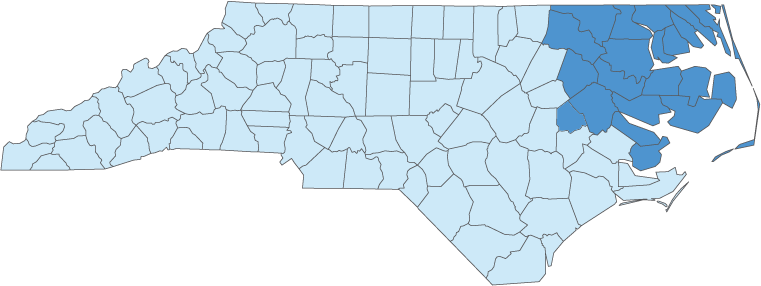In order to support workforce development within the health departments, the NENCPPH formed a taskforce to identify needs and strategies to address those needs. The taskforce reviewed and tweaked survey assessment tools. The resulting assessment was shared with the health departments in the NENCPPH, and completed by all levels of staff. From the survey a few major areas of training needs were identified, including stress management, team building, conflict management, and leadership skills.
In order to address the training needs, the NENCPPH decided to offer a one-day regional workforce development conference, and hold it on two consecutive days to allow for the greatest participation. The regional workforce development conference was organized by the task force members with assistance from Eastern AHEC. Public health champions were recognized, and some participated on a panel during the conference.
The first regional 1-day workforce conference, “We Are the Champions! Moving Public Health Forward,” was held in the spring of 2018 on two dates with approximately 130 attendees total. The second regional workforce conference, “We Are the Champions! Meeting People Where They Are,” was postponed a couple of times due to the COVID-19 pandemic and the role of the local health departments in providing vaccinations, etc., but was eventually held in the spring of 2022 in Greenville with 62 participants in attendance. A third regional conference, “Public Health Champions…Inspiring Generations” was held in November 2023 in Plymouth with 73 participants. The fourth regional conference, “Public Health Champions…Collaborating With Our Communities,” is being planned for fall 2025.
The NENCPPH has also organized some other regional educational opportunities for public health staff. In 2025 a True Colors/Conflict Navigation training was held for Health Directors and management team staff. In 2024 a 4-part leadership development series, Next Level Leadership, was provided locally. Topics covered included team building, managing multiple communication styles, managing multiple generations, navigating conflict, true colors personality assessment, facilitation techniques, and many tools and resources were shared and put into practice. A variety of Harm reduction educational opportunities have been offered, as well as Epi Teams training, Medicaid transformation and reconciliation training, and regional care management trainings.
